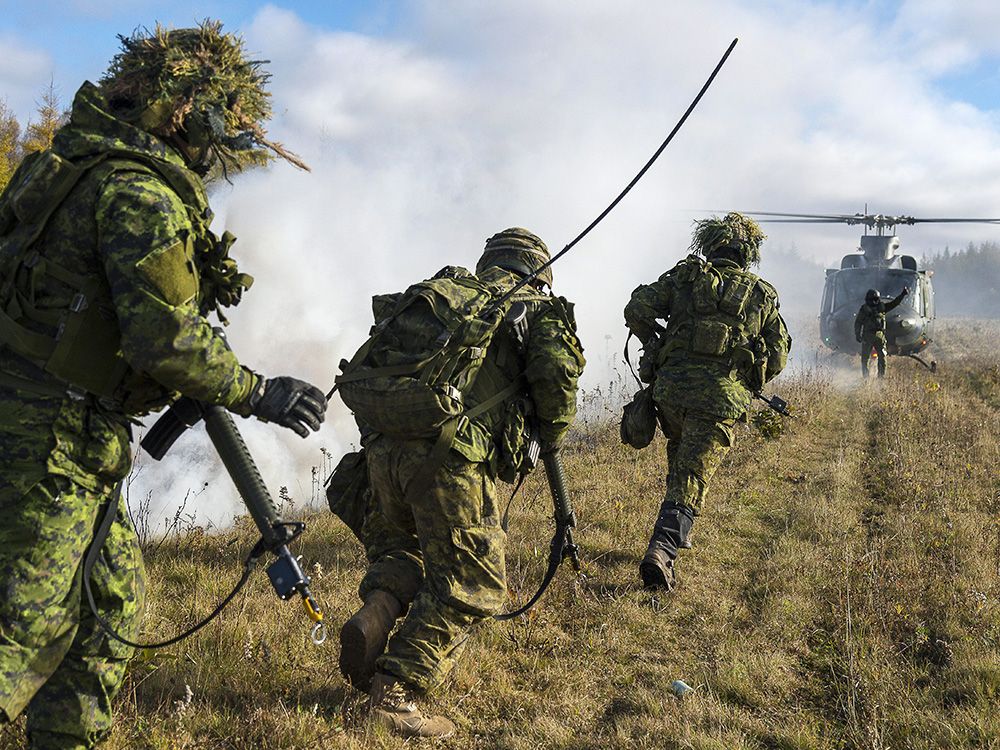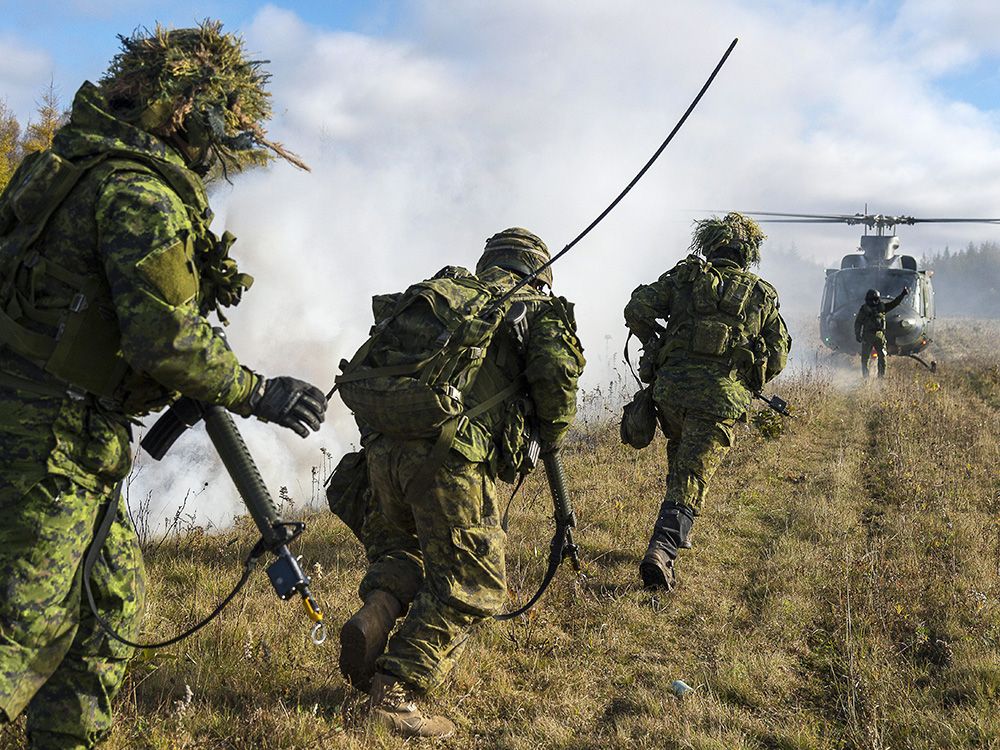
As Canada ramps up defence spending in an effort to meet its NATO commitments, a pollster suggests the military may struggle to find the people it needs. According to a new Angus Reid Institute poll, just under half of Canadians say they’d be willing to serve if war broke out, and younger adults were the least likely to say they would volunteer.
The survey asked Canadians if they would be willing to fight in a war. Only 49 per cent of respondents said they would volunteer for military service in a combat role. Nineteen per cent said, “Yes, if my country called on me,” while 30 per cent said, “Yes, but only if I agreed with the reasons for fighting.” More than a third (39 per cent) said they would not be willing to volunteer to fight, while another 12 per cent were not sure. In 1985, when asked if they would be willing to fight for Canada, 61 per cent said “yes,” while 15 per cent said “it depends.”
“One of the things that’s becoming very clear, and very evident is that the conversation around military readiness, security, defence, is certainly having a moment. We’re seeing a 30-year high in terms of willingness to spend more on defence,” said Shachi Kurl, president of the Angus Reid Institute, in an interview with National Post. “We wanted to understand the size and the scope of the willingness (to volunteer for the armed forces) among Canadians.”
For years, the Canadian Armed Forces has been dealing with a recruitment crisis and public pride in the military has taken a hit following concerns about underfunding and the lingering impact of the 2021 sexual misconduct scandal. In 2019 nearly 80 per cent of Canadians said they felt proud of the armed forces, today that has dropped to 52 per cent.
Willingness to serve was highest among men over the age of 54, with 69 per cent saying they would be willing to volunteer (35 per cent unreservedly and 34 per cent if they agree with the war) and only 21 per cent saying they would not. However, since the army’s retirement age is 60, this willingness is of limited practical use. Meanwhile, younger Canadians, who are more sought after by the armed forces, were less willing to volunteer.
“It’s one thing to just talk about, we’re going to spend money, it’s another thing to commit the dollars and spend the money, but the money is going to be spent on people. So how do you square that circle, knowing, for example, that among the least amount of willingness … is among that 18 to 34 cohort,” said Kurl.
The poll found that 45 per cent of men aged 18 to 34 were willing to volunteer to fight (21 per cent unreservedly and 34 per cent if they agree with the war) while 36 per cent of men said they were not willing to volunteer. Women in that age group were far less willing to serve, despite efforts to recruit more women to the armed forces. Only 31 per cent said they would volunteer (10 per cent unreservedly and 21 per cent if they agree with the war) while 58 per cent said they would not.
Overall, Canadians older than 54 are more willing to serve (55 per cent) than men and women aged 18 to 34 (43 per cent).
The poll also showed that political affiliation played a role in willingness. Nearly six in 10 past Conservative voters said they would volunteer, compared to just over four in 10 Liberal voters. A majority of NDP (54 per cent) and Bloc Québécois (52 per cent) supporters declined to volunteer at all.
“We’ve seen through extensive study at the Institute on other related areas, such as where should Canada’s international priorities be, Conservative voters do tend to say they should be more on defence,” said Kurl.
“It’s notable, again, in terms of some of those who are most willing are older male conservative voters,” which again, is not the demographic the forces’ are looking for.
As Canada recommits to its role in NATO, the question isn’t just how much the country is willing to spend on its military, but who is willing to serve in it.
“We don’t have robot armies yet, so there’s also a human aspect to this,” said Kurl.
The national online survey was conducted from June 2 to 23 among a randomised sample of 1,619 Canadians who are members of the Angus Reid Forum. It was weighted to represent Canadian adults nationwide, according to the census. Traditional margins of error do not apply to online surveys, but, for comparison purposes, a probability sample of this size would have a margin of error of plus or minus two percentage points, 19 times out of 20.
Our website is the place for the latest breaking news, exclusive scoops, longreads and provocative commentary. Please bookmark nationalpost.com and sign up for our daily newsletter, Posted, here.
